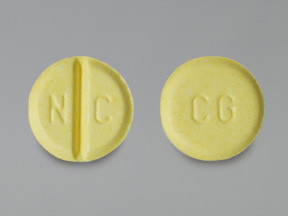ARTEMETHER/LUMEFANTRINE - ORAL
PHONETIC PRONUNCIATION: (ar-TEM-e-ther/LOO-me-FAN-treen)
COMMON BRAND NAME(S): Coartem
GENERIC NAME(S): artemether/lumefantrine
Uses
USES: This medication is used to treat malaria in adults and children. The two ingredients in this medication belong to a class of drugs known as antimalarials. Malaria is an infection caused by mosquito bites received while traveling or living in regions of the world where malaria is common. Malaria parasites enter the body, and live in body tissues such as red blood cells or the liver. This medication is used to kill the malaria parasites living inside red blood cells. In some cases, you may need to take a different medication (such as primaquine) to kill the malaria parasites living in the liver. Both treatments may be needed for a complete cure and to avoid the return of infection (relapse). This product is not used to prevent malaria. The United States Centers for Disease Control provide updated guidelines and travel recommendations for the prevention and treatment of malaria in different parts of the world. Discuss the most recent information with your doctor before starting treatment with this medication.
How to use ARTEMETHER/LUMEFANTRINE - ORAL
HOW TO USE: Read the Patient Information Leaflet if available from your pharmacist before you start taking this medication and each time you get a refill. If you have any questions regarding the information, ask your doctor or pharmacist. Take this medication by mouth, with food, exactly as prescribed by your doctor. This medication is usually taken twice a day with a meal for 3 days (6 doses) or as directed by your doctor. On your first day of treatment, take your first dose with food, followed by your second dose 8 hours later. Then each day for the next 2 days, take one dose in the morning and one dose in the evening. It is important to take every dose of this medication with food or milk, infant formula, pudding, porridge, or broth. Food helps this medication work better. Tell your doctor if you are unable to eat. If you or your child cannot swallow tablets, the artemether/lumefantrine tablets may be crushed and mixed with one or two teaspoons (5 to 10 milliliters) of water in a clean container at the time your dose is due. Do not crush tablets or mix with water in advance. Follow the dose of medication with food or drink (such as whole milk, formula, pudding, broth, or porridge). If you or your child vomits within 1 to 2 hours of taking this drug, repeat this dose and contact your doctor right away. You will need to make sure you have enough tablets to complete your full course of therapy. If you vomit 2 doses, you may need to be treated with a different medication. The dosage is based on your medical condition, weight, and response to treatment. It is very important to continue taking this medication exactly as prescribed by your doctor. Do not take more or less of this drug than prescribed. Do not skip any doses. Continue to take this medication until the full prescribed amount is finished, even if symptoms disappear after a few doses. Skipping doses or stopping the medication too early may make the infection more difficult to treat and result in a return of the infection. This medication works best when the amount of drug in your body is kept at a constant level. Therefore, take this drug at evenly spaced intervals. To help you remember, take it at the same times each day. Avoid eating grapefruit or drinking grapefruit juice while using this medication unless your doctor instructs you otherwise. Grapefruit can increase the amount of this medication in your bloodstream. Consult your doctor or pharmacist for more details. Seek immediate medical attention if your symptoms of malaria (such as fever, chills, headache, other flu-like symptoms), persist or worsen after 1 to 2 days of taking this medication. If your fever returns after completing this prescription, contact your doctor so that he/she can determine whether the malaria has returned. Quick treatment of malaria is needed to prevent serious, possibly fatal, outcomes.
Side Effects
Precautions
Interactions
Overdose
Images
Reviews
Faq for ARTEMETHER/LUMEFANTRINE - ORAL
Artemether/Lumefantrine oral is used for the treatment of uncomplicated malaria caused by certain strains of the Plasmodium parasite.
Artemether/Lumefantrine oral works by killing the malaria parasites in the blood. Artemether kills the parasites at an early stage, while Lumefantrine continues to eliminate any remaining parasites.
Artemether/Lumefantrine oral should be taken with food, preferably a meal, to ensure maximum absorption. The dosage and duration of treatment will depend on your age, weight, and the severity of your infection. It is important to follow the instructions provided by your doctor or pharmacist.
The common side effects of Artemether/Lumefantrine oral include headache, dizziness, nausea, vomiting, abdominal pain, diarrhea, and fatigue. These side effects are usually mild and temporary.
Artemether/Lumefantrine oral should only be used during pregnancy or breastfeeding if the potential benefits outweigh the risks. It is important to consult with your healthcare provider before taking this medication.
Artemether/Lumefantrine oral may interact with other medications, including certain antibiotics, antifungal drugs, and antiviral drugs. It is important to inform your doctor about all the medications you are taking to avoid any potential interactions.
If you miss a dose of Artemether/Lumefantrine oral, take it as soon as you remember. However, if it is close to the time of your next dose, skip the missed dose and continue with your regular dosing schedule. Do not double dose to make up for a missed dose.
Disclaimer
IMPORTANT: HOW TO USE THIS INFORMATION: This is a summary and does NOT have all possible information about this product. This information does not assure that this product is safe, effective, or appropriate for you. This information is not individual medical advice and does not substitute for the advice of your health care professional. Always ask your health care professional for complete information about this product and your specific health needs.

No Reviews Yet